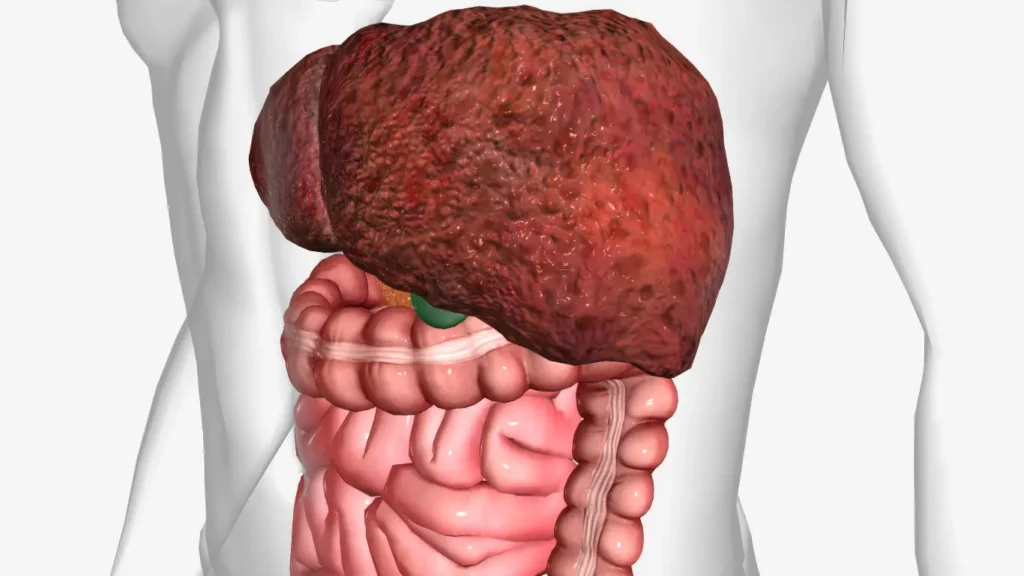Is Grade 1 Fatty Liver Truly Dangerous: Unveiling the Risk

In the realm of health concerns, Grade 1 Fatty Liver has emerged as a topic of discussion due to its prevalence in contemporary lifestyles. Exploring the realm of liver health, we aim to unravel the potential dangers associated with Grade 1 Fatty Liver. Understanding the potential dangers associated with this condition is crucial for informed decision-making regarding one’s health. This comprehensive guide seeks to outshine existing information, particularly addressing the query – “Is Grade 1 Fatty Liver dangerous?”
What Causes Grade 1 Fatty Liver?
The genesis of Grade 1 Fatty Liver often stems from our daily habits. A sedentary lifestyle, poor dietary choices, and genetic predisposition can collectively contribute to the development of this condition, highlighting the need for lifestyle modifications.
Identifying Symptoms of Grade 1 Fatty Liver
Recognising the symptoms is the first step towards addressing any health issue. Fatigue, abdominal pain, and elevated liver enzymes are common indicators that warrant attention and further investigation.
Diagnostic Procedures
To delve deeper into liver health, various diagnostic procedures such as blood tests, imaging studies, and biopsies become essential. These help in accurately diagnosing the severity of the condition.
Is Grade 1 Fatty Liver Dangerous?
Grade 1 fatty liver, also known as mild hepatic steatosis, is the least severe stage of fatty liver disease. It indicates the presence of a small amount of fat in liver cells. While it is considered the early stage of fatty liver disease, it is generally reversible with lifestyle changes.
At this stage, the condition may not cause noticeable symptoms, but it’s essential to address it to prevent progression to more severe stages, such as grade 2 or grade 3 fatty liver. Lifestyle modifications like adopting a healthy diet, increasing physical activity, and maintaining a healthy weight can help manage and improve grade 1 fatty liver.
- Lifestyle Changes for Managing Grade 1 Fatty Liver: Embarking on a journey towards better health involves lifestyle modifications. From dietary changes to regular exercise and weight management, adopting a holistic approach becomes paramount in managing Grade 1 Fatty Liver.
- Medical Interventions: In some cases, medical interventions become necessary. Exploring options such as medications, nutritional supplements, and professional guidance sheds light on the multifaceted approach to combating Grade 1 Fatty Liver.
- Prognosis and Recovery: Optimism accompanies lifestyle changes, as positive outcomes can be achieved with dedication and consistency. Monitoring and follow-up care play pivotal roles in the recovery process.
- Prevention Strategies: Prevention is undoubtedly better than cure. By making healthy lifestyle choices, undergoing regular health check-ups, and fostering awareness, individuals can take proactive measures to prevent Grade 1 Fatty Liver.
Leborax DS Syrup: A Game-Changer
Leborax DS Syrup, a meticulously formulated remedy, stands out in the market. Loaded with potent ingredients, it aims to combat fatty liver by promoting fat metabolism and reducing inflammation.

Benefits of Leborax DS Syrup
1. Fat Metabolism Enhancement
Leborax DS Syrup facilitates the breakdown of fats, reducing the burden on the liver and promoting a more efficient metabolic process.
2. Inflammation Reduction
By targeting inflammation, a common consequence of fatty liver, this syrup helps in mitigating damage and fostering a healing environment within the liver.
3. Antioxidant Support
The robust antioxidant properties of Leborax DS Syrup offer comprehensive protection against oxidative stress, safeguarding liver cells from damage.
Conclusion
In wrapping up our exploration of Grade 1 Fatty Liver, a fundamental question lingers: Is Grade 1 Fatty Liver truly dangerous? The answer lies in understanding the nuances of this condition, the potential risks it poses, and the empowering steps one can take to mitigate its impact. By delving into the significance of early intervention, adopting a healthier lifestyle, and staying vigilant with medical guidance, individuals can actively navigate and, in many cases, reverse the effects of Grade 1 Fatty Liver. The journey to better liver health begins with knowledge and proactive choices – a testament to the transformative power of informed decision-making.
